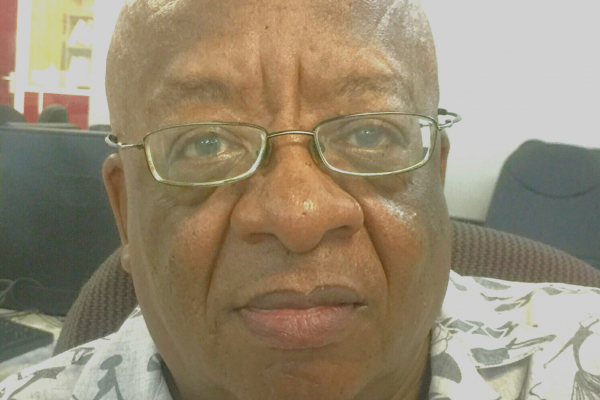
As the world marks 400 years since 1619, when Africans were first abducted and sold into slavery in America, this extract below from the book To Be A Slave by African-American author Julius Lester, published in 1968, captures the abject wickedness and naked greediness of it all:
“It is estimated that some fifty million people were taken from the continent during the years of the slave trade. These fifty million people were, of course, capable of bringing great profit, first to the slave trader, and later to the slave owner. These Africans were scattered throughout South America, the islands of the West Indies, and the United States. Africa’s citizens became the labouring backbone of much of the western hemisphere.
“Slavery differed from country to country. But it was in the United States that a system of slavery was evolved that was more cruel and total than almost any other system of slavery devised by one group of men against another.
No other country where blacks were enslaved destroyed African culture to the extent that it was destroyed there. Today there still exist, in South America and the Caribbean, African religions, music and language, which came over on the slave ships. Only fragments of Africa remain among the blacks of the United States.
“The slavery instituted by the founders of America has few comparisons for its far-reaching cruelty.”
Indeed, institution of slavery was designed to destroy the soul and the spirit — and the enslavers succeeded to some or even great extent.
Said one such slave who had been completely broken down by slavery: “I thought white folks made the stars, the sun and everything on earth.”
Generally, these were those slaves who had the most contact with the white master and his family — the house servants. Wrote Lester: “Because of this constant contact, the house servants were much more likely to be the model slaves that slaveholders dreamed of.”
- Chamisa under fire over US$120K donation
- Mavhunga puts DeMbare into Chibuku quarterfinals
- Pension funds bet on Cabora Bassa oilfields
- Councils defy govt fire tender directive
Keep Reading
Well, it’s still playing out today where we see some people vying to be accepted as model Africans by the former slave masters in the West. We see that dutiful obedience to the white Western world. For instance, some non-governmental organisations put approval from the West above the voice of voters. It’s so perverted that — like the dutiful house negroes — they get award after award from Western embassies and governments.
Lester expanded: “Quite often a house servant was trained to his duty from childhood. He was separated from other slaves, and from that time on, he slept on a pallet on the floor of the owner’s bedroom or outside his door. He was raised to believe that to be a house servant was the greatest honour that could come to him.”
These house negroes — also derisively referred to as house niggers — will do and say anything to please their white masters. One of them, Ben Carson — soon after being appointed into United States President Donald Trump’s Cabinet in 2017 — said with a straight face that Africans brought to the Americas as slaves were “immigrants” who imagined the US as a “land of dreams and opportunity”.
Said Carson: “There were other immigrants who came here in the bottom of slave ships, worked even longer, even harder for less.” Alas! Maihweeee! Mayibabo!
Yes, the psyche of some people has been permanently damaged. Maybe it was passed from generation to generation in the Carson family that getting the favour of whites was the greatest honour that could come to them. After Trump brought him into close proximity, he obliged by making light of the horrific history of slavery.
House niggers can also be virulent in their ignorance as seen in the current xenophobic outrage in Africa. Economic Freedom Fighters leader Julius “Juju” Malema this week told these misguided elements: “Our anger is directed at wrong people. Like all of us, our African brothers and sisters are selling their cheap labour for survival. The owners of our wealth is white monopoly capital; they are refusing to share it with us, and the ruling party, ANC [African National Congress], protects them.”
One does not have to totally agree with Malema to see that there’s a lot of home truths in his observation. It’s the same with much of the anger here in Zimbabwe where the main trade union umbrella body, Zimbabwe Congress of Trade Unions, is looking in the wrong direction most of the time because it is funded by external white monopoly capital. White monopoly capital has a long and profitable association with slavery. Several banks in the West can trace their origins to the financing of the slave trade. Apart from the Barclays Brothers, who were slave traders, it is also known that several other banks were involved. Liverpool merchants involved in slave trading later formed Heywoods Bank, which eventually became part of Barclays Bank. Much of Britain’s wealth is built on slavery — and, although now sophisticated, the template of human exploitation by fellow humans is still as damaging. Talk of modern-day slavery! Spot-on, Juju!
But the slave owners, much as they tried, failed to destroy that indomitable and indefatigable spirit inside the human being despite all their excesses to dehumanise them. For one, the slaves were not as dumb as their white racist enslavers presumed. They had superb coping mechanisms. They could turn insult into compliment. Wrote Lester: “The slave owner profaned the Portuguese word for black, ‘Negro’, and made it ‘nigger’. It was a brutal, violent word that stung the soul of the slave more than the whip did his back. But the slaves took this ugly word and, like the white man’s religion, made it their own. In their mouths, it became an affectionate, endearing word. As much as was possible, they robbed it of its ability to spiritually maim them.” Further observed Lester: “One of the more constant tools that the slaves used to resist the spiritual brutality of slavery was music.”
Well, today, in Zimbabwe, much of the artistic independence has been surrendered to donors for money. Observes social commentator Cynthia Marangwanda: “Donor funding is killing arts in Zimbabwe. We need to get our economy fully functional again so that artistes are not forced to work on projects with themes like HIV/Aids, poverty and child marriage just to make a living. Our artistes deserve the creative licence to create freely from their souls and not feel pressured to create work that pushes a Western stereotype of Africa.”
Contemporary Zimbabwean artistes ought to learn from the slaves what cultural pride and own creativity means. The slaves did not earn anything from toiling in the fields, but did not stoop low to write books, sing songs or sculpt art pieces to reinforce the white former slave masters’ stereotypes of Africans. Had the slaves caved in, there would not have been African-American music giants such as Louis Armstrong, Otis Redding, Michael Jackson, Tupac Shakur or Jay Z to talk about. There would be no jazz or other black genres which have become the global gold standard in music. Despite the brutal and dehumanising slavery, the slaves — many of them illiterate as they were — kept their artistic independence. You don’t have to sell your soul, as shown by the slaves who could have done so, but did not.
Back to Malema, he responded thus when a supporter said to him that coming to the side of xenophobia victims would make him lose elections: “You think I exist for elections? Through a lie you want me to abandon my African family because I must become President? Then I don’t want to be your President. Let me die next to my own.”
Conway Nkumbuzo Tutani is a Harare-based columnist. Email: [email protected]











